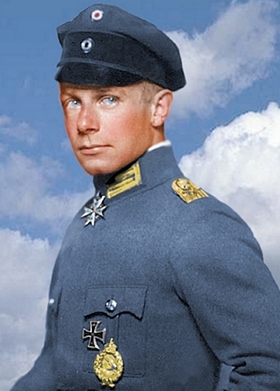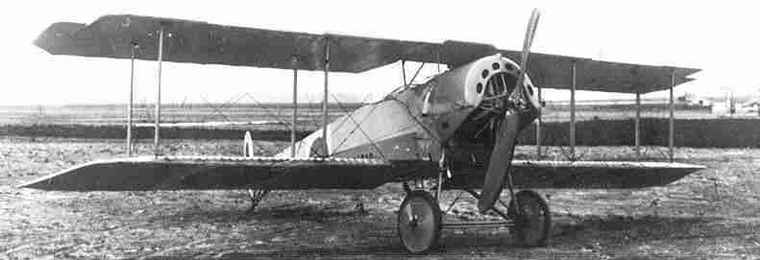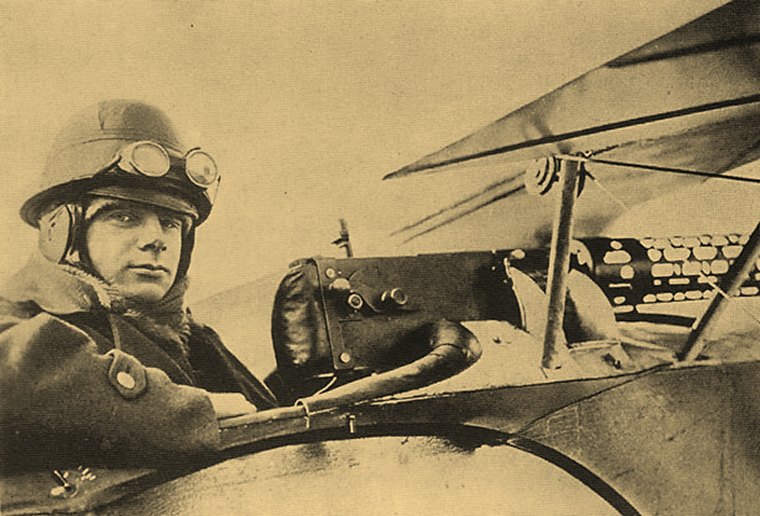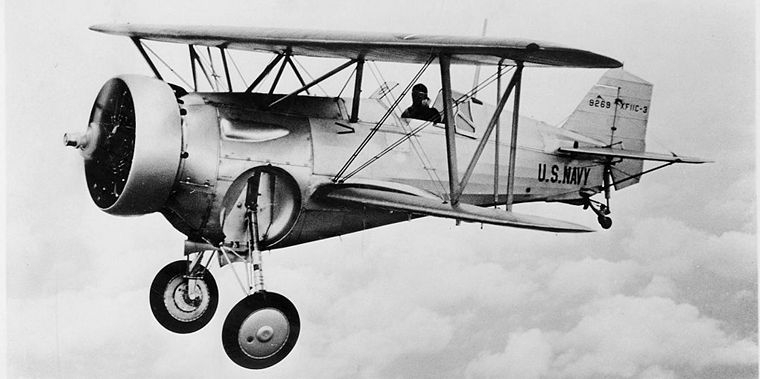












Ernst Udet-WWI Pilot-Film Actor and Luftwaffe Officer
By Willie Bodenstein

In 1909, he helped found the Munich Aero-Club. After crashing a glider he and a friend constructed, he finally flew in 1913 with a test pilot in the nearby Otto Works.
Through a family friend, Gustav Otto, owner of the Otto Works aircraft factory he had haunted in his youth, Udet received private flight training. This cost him 2,000 marks (about $400 in 1915 U.S. dollars) plus some new bathroom equipment from his father's firm. Udet received his civilian pilot's license at the end of April 1915 and was immediately accepted by the German Army Air Service.
Udet was assigned a new Fokker to fly to his new fighter unit, FFA 68,at Habsheim. Mechanically defective, the plane crashed into a hangar when he took off. He then was given an older Fokker to fly. His first aerial combat was a near disaster. Lining up on a French Caudron, he found he could not bring himself to fire on another person and was subsequently fired on by the Frenchman. A bullet grazed his cheek and smashed his goggles. From then on, Udet learned to attack aggressively and began scoring victories, downing his first French opponent on 18 March 1916

Fokker DIII. Photo © marinplanes.8m.com commons.wikimedia.org
Udet's success attracted attention for his skill, earning him an invitation to join the "Flying Circus", Jagdgeschwader 1 (JG 1), an elite unit of German fighter aces under the command of the famed Red Baron Manfred von Richthofen. Richthofen drove up one day as Udet was trying to pitch a tent in Flanders in the rain. Pointing out that Udet had 20 kills, Richthofen said, "Then you would actually seem ripe for us. Would you like to?" Of course, Udet would.
He was one of the youngest aces and was the highest scoring German ace to survive the war (at the age of 22). His 62 victories were second only to Manfred von Richthofen, his commander in the Flying Circus and later under Hermann Göring.

With 62 victories, Ernst Udet was the second-highest-scoring German ace of WW1

F11C-2 Goshawk. Photo US Navy Museum Pensacola/ commons.wikimedia.org
In April and May 1941 Udet led a German delegation inspecting Soviet aviation industry in accordance with the Molotov-Ribbentrop Pact. Udet informed Göring that the Soviet air force and aviation industry were very strong and technically advanced. Göring decided not to report this to Hitler, hoping that a surprise attack would quickly destroy Russia. Udet realized that the upcoming war on Russia might destroy Germany. He tried to explain this to Hitler but, torn between truth and loyalty, suffered a psychological breakdown.
By 1939, Udet had risen to the post of Director-General of Equipment for the Luftwaffe. However, the stress of the position and his distaste for administrative duties led to an increasing dependence on alcohol. On 17 November 1941 Udet committed suicide, shooting himself in the head while on the phone with his girlfriend.
 |
 |
 Copyright © 2024 Pilot's Post PTY Ltd
The information, views and opinions by the authors contributing to Pilot’s Post are not necessarily those of the editor or other writers at Pilot’s Post.
Copyright © 2024 Pilot's Post PTY Ltd
The information, views and opinions by the authors contributing to Pilot’s Post are not necessarily those of the editor or other writers at Pilot’s Post.